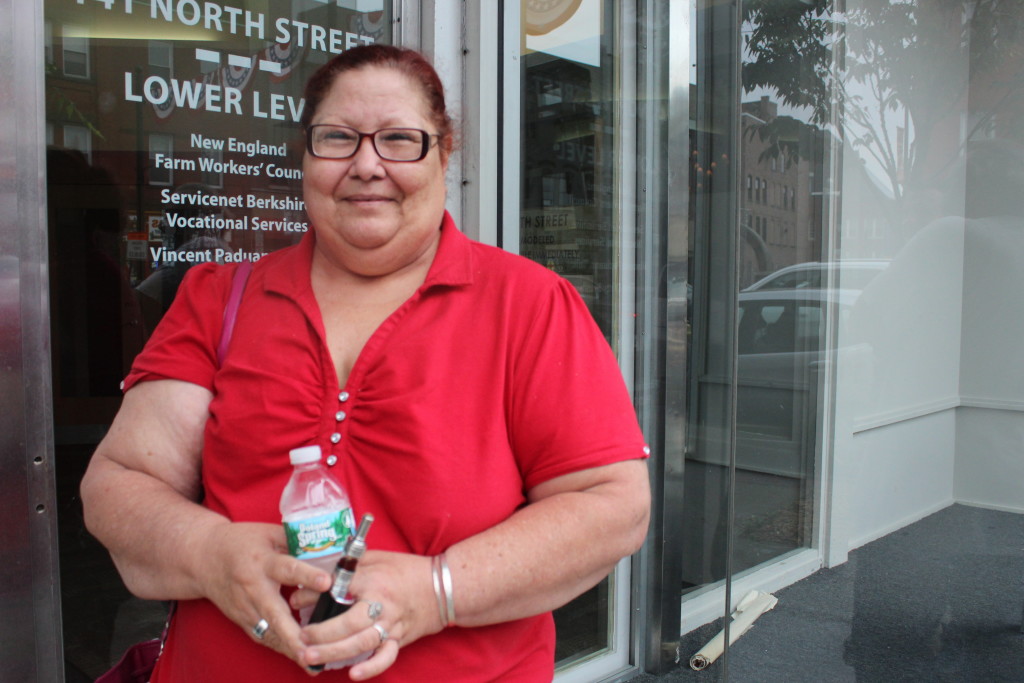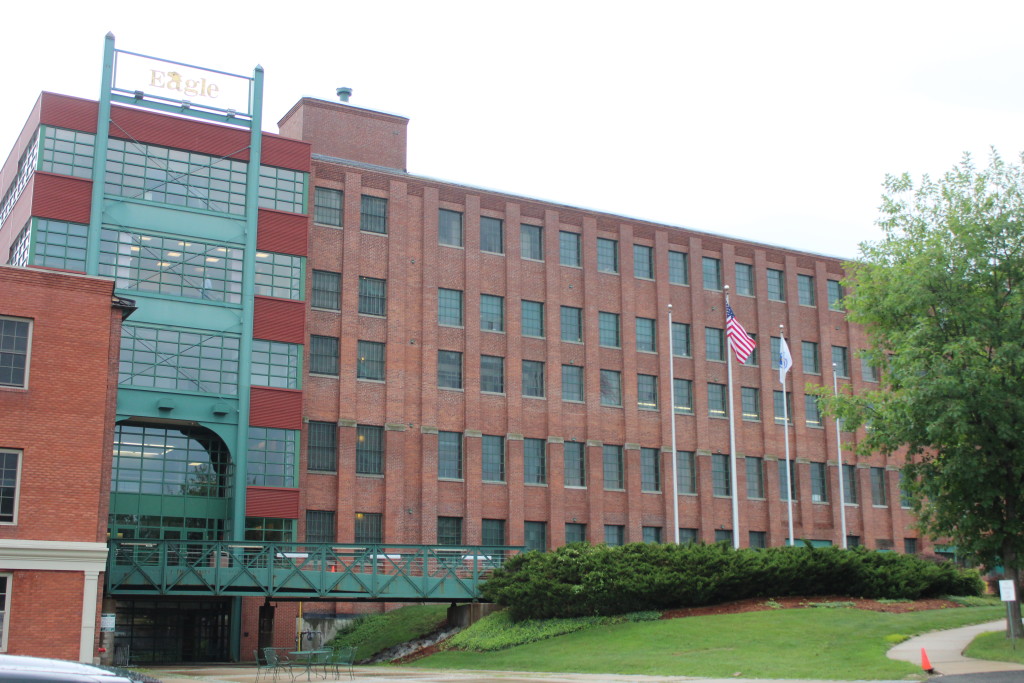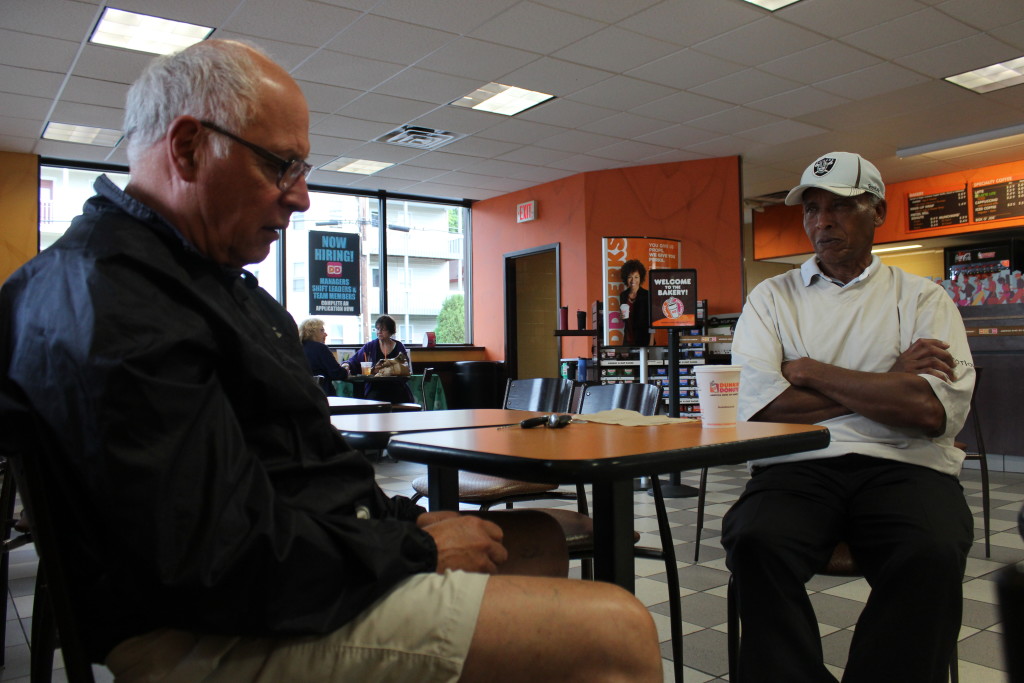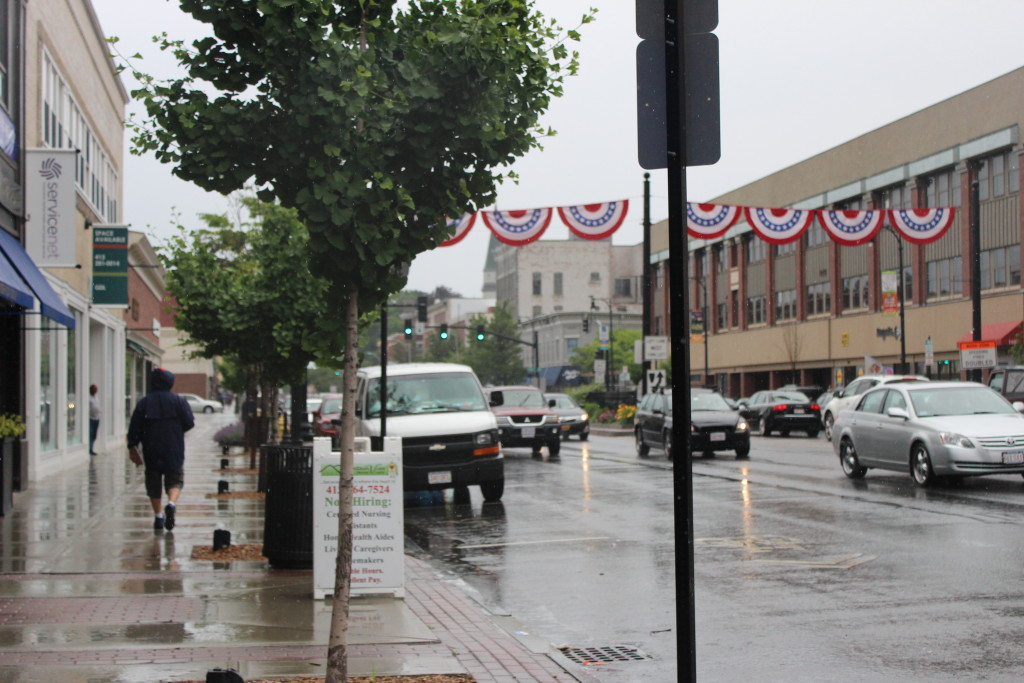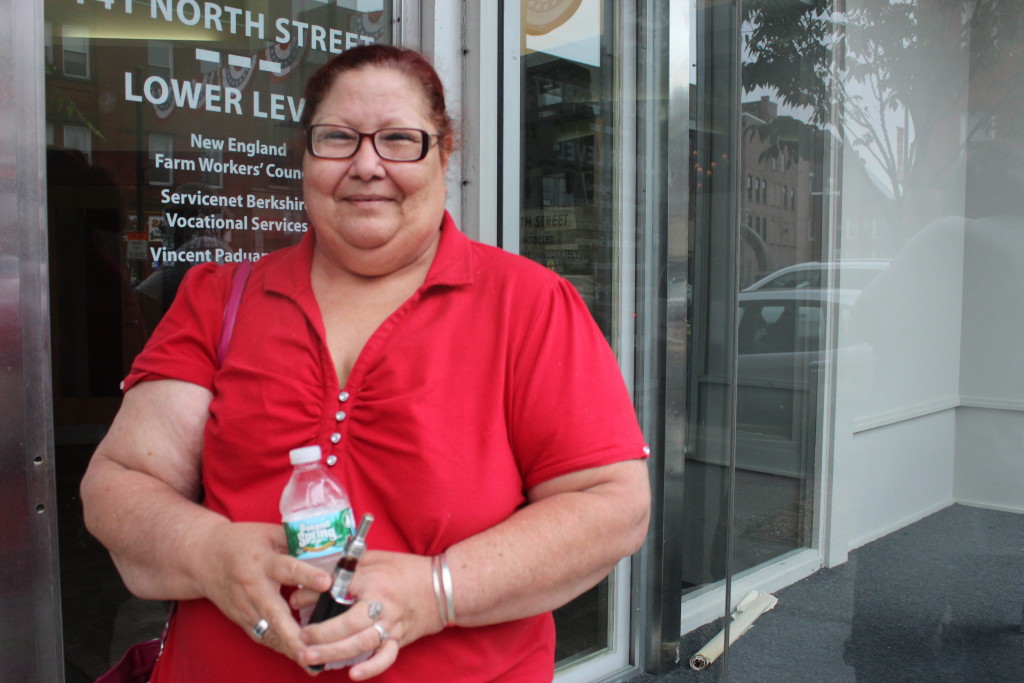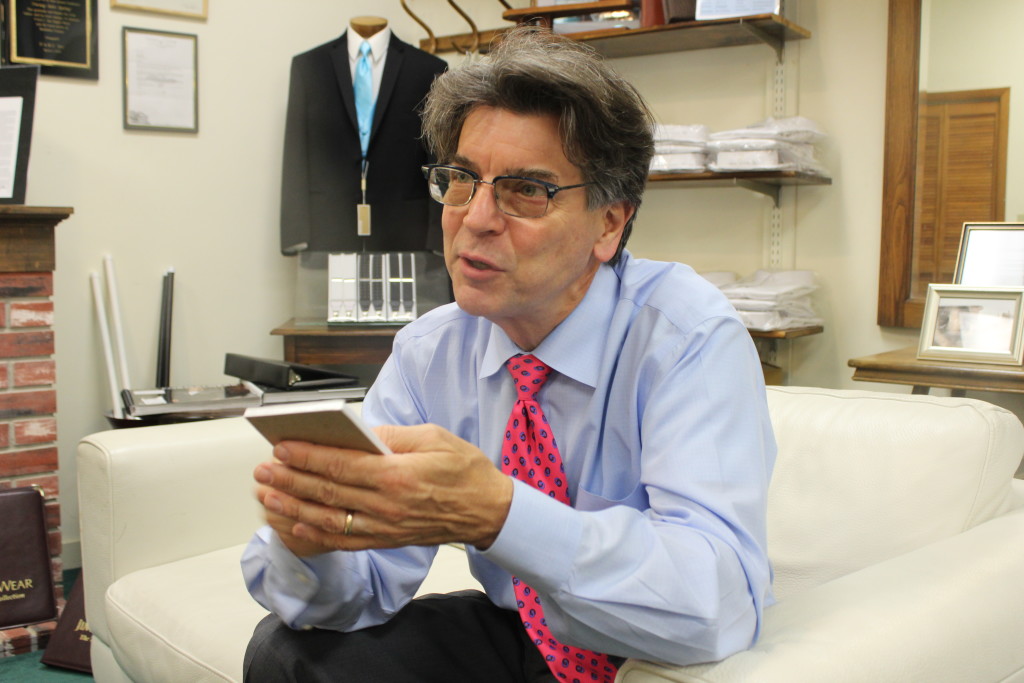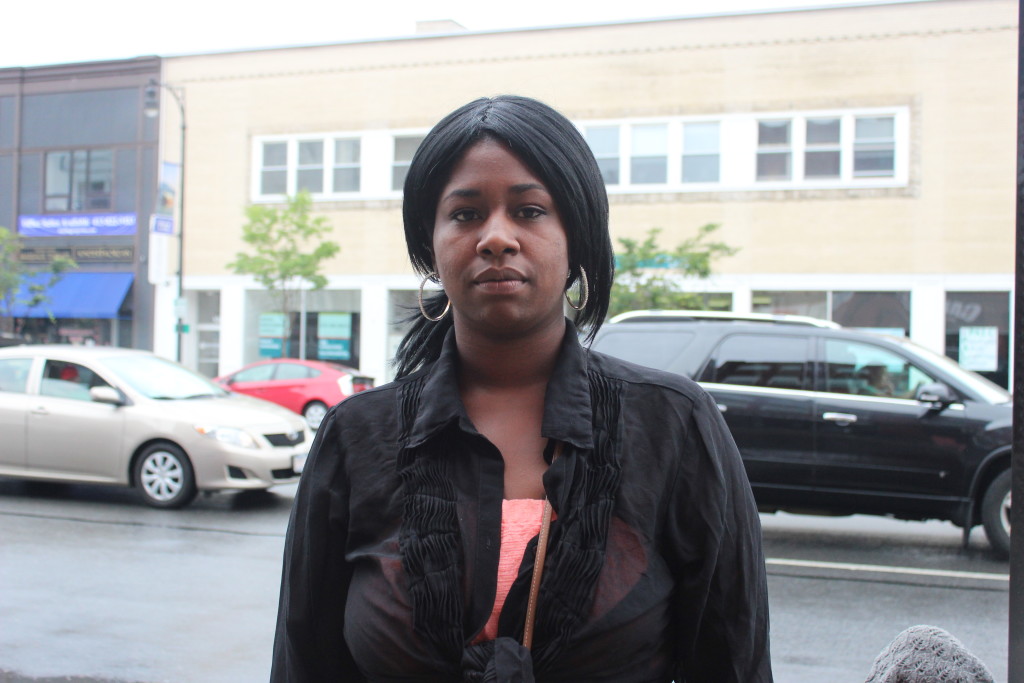The backlash was swift and the sorry-not-sorry was predictable in the fallout from the Berkshire Eagle’s decision to print a racist column, “Here’s the solution for black America,” which continues to unfold.
On June 13 the Berkshire Eagle, based in Pittsfield, published the above-mentioned column by Berkshire County Republican Association member Steven Nikitas. The column is part of a bi-weekly series penned by the association and published by the Eagle in an effort to balance out its left-leaning opinion page, according to the Eagle’s editorial page editor. This column had about as much balance as Bill O’Reilly after a ride on the Zipper.
Here’s a sample: “Conservatives have recommended over and over that blacks reform their culture from top to bottom by respecting marriage and the family and the law, returning to their churches, embracing education and hard work, avoiding violence and debased rap music, speaking clearly, shunning drugs and profanity, and pulling up their pants. And to stop blaming all of their problems on everyone else.”
Nikitas’ words weren’t the only target of the backlash since publication — the piece ushered in an online furor over whether or not this kind of “racist screed” has a place in the Eagle’s pages.
One of about 100 online comments reads: “There isn’t much here in Mister Nikitas’ shrill screed above that couldn’t be found on the pages of any white-supremacist website. But I don’t blame Nikitas. He has a right to his half-truths, cherry-picked numbers and anecdotal evidence. But I certainly blame the editors of The Eagle for publishing such blatantly bigoted — and wildly consistently false — material without editorial discretion of any sort.”
And people aren’t only talking about it online.
“I heard about that,” said Dean Steinman, 40, of Pittsfield, while getting a coffee at Dunkin’ Donuts on Tyler Street. “People were up in arms about it. I think it’s stereotypical.”
“I saw it,” said Joann Peña, of Dalton, while smoking a cigarette on North Street in Pittsfield. “I was so upset. The way I see it, we’re all the Lord’s kids. ”
Black people in Pittsfield said Nikitas’ column is more of the same old racism with which the black community has long dealt.
“It’s been an ongoing problem for centuries,” said Sheena Love, 32, owner of Treasure of Hope on North Street. Love said the column is racist, but praises the Eagle for printing it. “It belongs in the paper, she said. “To shed a light on it.”
“He’s doing what’s been done for centuries,” said Moses Haile Jr., 75, of Pittsfield. “And that’s categorizing us all in one swoop.”
“There’s a lot of us out there who go to work, take care of the family, and do the right thing. I got bent out of shape about that [column]. It caught my attention.”
Haile said that growing up was different for him, recalling how his father and black army superiors told him being black meant he had “to be twice as good.”
“There’s a lot more opportunity today than there was when I was growing up,” Haile said, though he and fellow veteran and friend, Gene Laycock, referenced “subtle racism” on the golf course they’d just come from. “We still live in a racist society. I don’t think it will ever go away.”
The column is even turning heads beyond the Berkshires. Respected journo Dan Kennedy has plastered his blog, Media Nation, with criticism in recent weeks.
“You call attention to racism with reporting, not by providing a platform to a racist,” writes Kennedy. “Besides, racists are not particularly exotic; you can find them everywhere.”
Nikitas canceled a scheduled interview with the Advocate, writing via email that “the column spoke for itself.”
Kevin Moran, Eagle editor, penned an editorial in response to the backlash, defending the paper’s publication of the piece. “Sunlight can be a great disinfectant,” he wrote, denouncing Nikitas’ opinion, but asserting the value in publishing opinions that make people uncomfortable.
Bill Everhart, the paper’s editorial page editor, said the editorial team has been “bending over backwards” trying to get opposing views in their pages. He said that, in the interest of presenting those opinions that are different from theirs, editors didn’t even consider not publishing Nikitas’ piece. “There are people who feel that way and we want to give them a place to share their opinion,” Everhart said.”That kind of dialogue is absolutely necessary in a democracy.”
Everhart said “very little” editing goes into the editorial page — the piece ran “pretty much the way he wrote it.” He said fact-checking is certainly involved, but that Nikitas’ piece was all opinionated speculation, not fact.
He said it doesn’t matter how many people there are who share Nikitas’ opinion, they’re out there, so the opinion needs to be expressed.
“Nothing good comes from keeping unpopular views underground,” said Everhart. “They fester.”
Larry Parnass, editor of the Daily Hampshire Gazette, disagreed with the Eagle’s decision to print the piece. He said the opinion page should do more than merely reflect the community.
“It’s not a matter of holding up a mirror,” said Parnass. “You have to curate the commentary with a purpose.”
That curation, Parnass said, must be even-handed, and that purpose should be to provide a useful public forum. He said those who submit opinion pieces to the Gazette are called out on faulty assumptions and are stopped short of throwing stones.
“It’s fair to question whether the government should engage in anti-poverty programs,” Parnass said. “But [Nikitas] goes off the rails when he speaks categorically about speech and dress and goes from speaking about politics to personality — that’s where he’s not making valuable criticisms — he’s taking shots. And there’s no place for that.”
An editor for a competing Berkshire paper said some good conversation has come from the piece, and that’s always the goal of a newspaper editor.
“His opinion may be difficult, but there was a value in the discussion that happened,” said Kameron Spaulding, editor of the Berkshire Courier.
It’s so nuanced that it’s not a clear case, said Razvan Sibii, lecturer of journalism ethics at UMass Amherst. “That’s the nature of ethical dilemmas,” Sibii said. “It’s not about the right decision, it’s about the less bad decision.”
Sibii said Nikitas cleverly constructed the piece, wording it in such a way it implied his assertions were factual, though his sentences are steered “away from declaratives that can be easily challenged on a factual basis.” This, he explained, leaves little room for the editors to question his points. Sibii said that Nikitas tells half of the story in a way that shines a positive light on his point of view, but to say he’s “lying by omission” is “a shaky argument to make.”
“He’s walking a very fine line,” Sibii said.
Sibii said opinion pages are complicated because they’re printed without context. In a reported piece, a journalist is charged with presenting all sides of the story, whereas a column is only one person’s perspective.
“One should do journalism about all the voices out there — no matter how wacky — because in an article you can provide context,” Sibii said.
In this case, Sibii said, it’s important to consider the person who is presenting the opinion and the community from which it’s coming from when making the decision of whether or not to publish. It’s important to note, he said, that Nikitas isn’t a “random hate spewer,” but an official member of one of the two major political parties.
“Racist people are often thought of as uneducated and this guy is not that,” Sibii said. “I disagree with every sentence in this piece and I had a virulent reaction, but that’s not how one should think about this. It’s not the editor’s job to judge opinion. His job is to consider whether or not this opinion is needed and useful to the community.”
All things considered, Sibii said he erred on the side of the editor. There are many people out there who share Nikitas opinion and, since it’s coming from a person who’s politically active in the community, it’s a necessary evil to vet it.
“Democracy is hard; it’s messy,” Sibii said. “These questions are meant to be debated forever. There are many other issues in a democracy that are just like this — they’re always nuanced. The opposite is fascism and you don’t want to go there.”
From his North Street storefront, Steve Valenti said he’s been following the backlash and has found the responses to the column constructive. “There’s been a lot of people responding to this article,” he said. “That’s why we live in the U.S. We can challenge things.”
Conversations with people on the street turned to stories playing out on the national stage. Valenti said “police abuse of force” when dealing with black people is one of the “things to be concerned about.”
“Something needs to change,” Valenti said. ”We need to correct what’s wrong out there in a constructive way.”•
Contact Amanda Drane at adrane@valleyadvocate.com.

